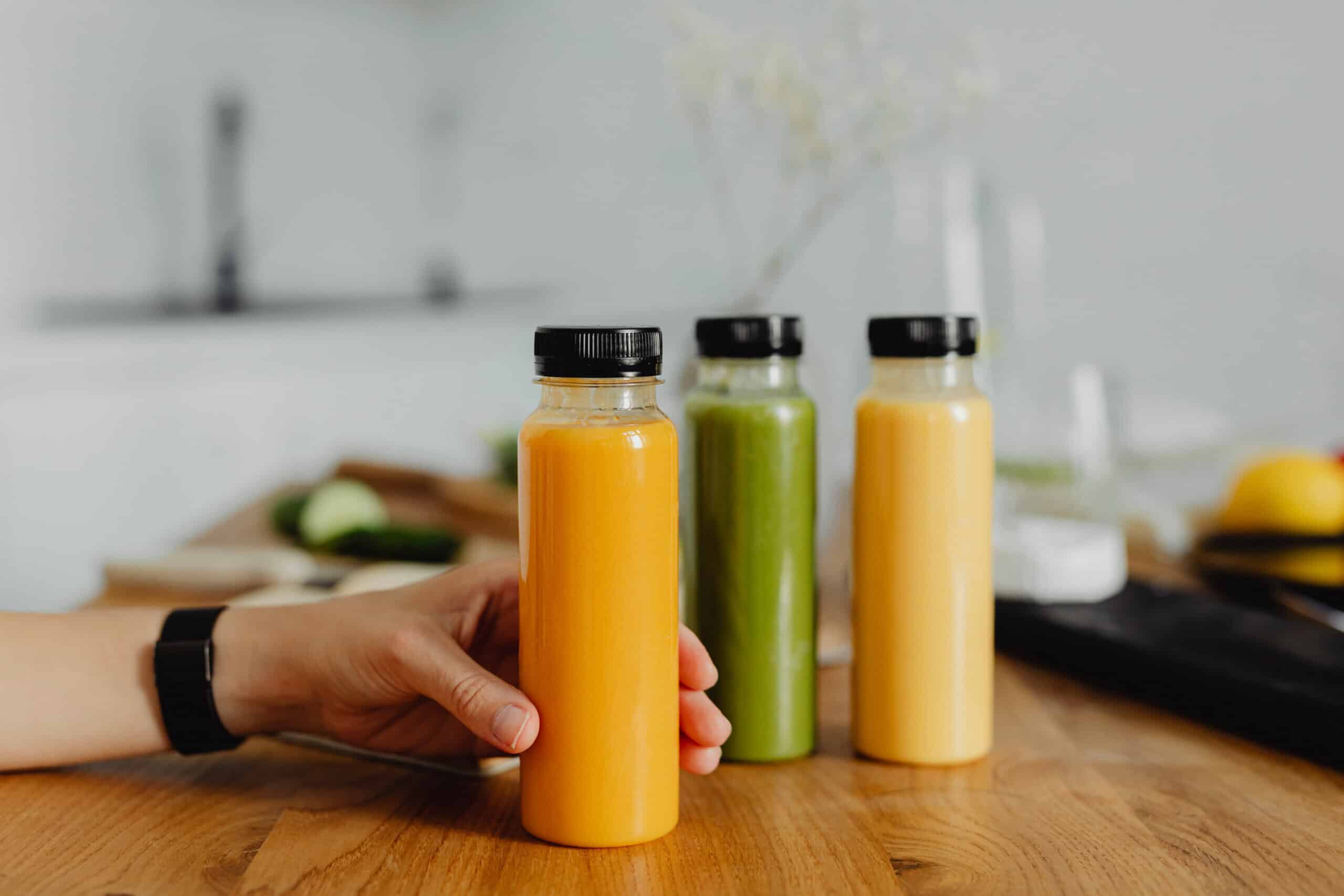How To Quieten Cravings
Today, we’re exploring how to quiet cravings to help you reduce that mental noise and stay on track towards your goals.
Cravings, or an intense desire to eat certain foods, are not unusual. In fact, 90% of the world’s population experience food cravings, however they can be difficult to ignore and can lead to over consumption of ultra-processed, nutrient-lacking foods1. Giving in to cravings can make it very difficult to stick to a health or weight loss journey, so it’s important to learn how best to manage and reduce them.
What are cravings?
A food craving is an often irresistible desire to consume a specific food, and is different from normal hunger. A helpful way to tell the difference is that hunger can be satisfied by eating any food, whereas a craving will only feel met if the specific food you’re craving is eaten.
Most of us experience cravings, but the intensity and kinds of foods we crave can differ from person to person. In fact, studies show that men and women tend to experience cravings in different ways:
- Women are found to experience stronger cravings more frequently in everyday life, with one three-day study showing women reported 15.6% more food cravings than men.2
- Women find it harder to regulate food cravings, according to studies.3
- Men and women tend to crave different foods, with women often reaching for sweet foods like pastries, ice cream, and chocolate, and men tending to crave savoury foods like meat, fish and eggs.4
Those who are wondering how to quiet cravings may even be experiencing an often debilitating experience called ‘food noise’. This term refers to the persistent and usually unwanted thoughts about food that can hinder weight management efforts. It can be a disruptive level of mental chatter that fuels cravings and makes them very hard to resist when trying to maintain a healthy lifestyle.
Our signature, science-based 12-week Programme is now more affordable with monthly payments.
Get access to the complete weight loss package with 3 affordable monthly payments: 1000+ recipes, 250+ workouts and step-by-step education to help you change your life for the better.
7-DAY FREE TRIAL
How to quieten cravings:
If you’re struggling and wondering how to quiet cravings, then there’s no need to worry because there are a few key ways you can reduce them.
- Eat more protein and fibre: An effective approach towards how to quiet cravings is to eat more of the nourishing foods. Protein in particular is a satiating macronutrient and has been shown to decrease hunger by reducing the speed of gastric emptying and decreasing ghrelin concentrations (the hunger hormone).5 6 Fibre also slows digestion by soaking up water in the intestine, and helps to stabilise blood sugars which can reduce cravings later on in the day.
- Use a meal planner and find healthy recipes you look forward to: Planning out your meals for the week with an effective nutrition tracking tool will ensure you’re eating the right amount of nutrients to keep yourself satiated so you won’t be left wondering how to quiet cravings. Our Programme has tailored meal plans featuring delicious recipes designed by our in-house nutritionist and recipe team that are sure to keep you full until your next meal, staving off unwanted cravings throughout the day.
- Keep blood sugars steady: If you spike your blood sugars from sugary or carb-loaded foods earlier in the day you are more likely to experience cravings later on as those levels crash. Similarly, if you let yourself get ravenously hungry, your blood sugars may get so low your body will direct you to consume high energy, often carb-laden, foods to get back up to the normal range quickly. Eat moderately low carb, satiating foods and avoid snacking to help stabilise your blood sugars.
Join our email community
Learn more about The Fast 800 approach to healthy living by receiving our free content, health tips and recipes as well as exclusive offers, delivered straight to your inbox.
- Ask yourself if it’s physical or emotional hunger: Cravings can often be triggered by feelings such as anxiety, boredom, happiness or sadness. When you consume junk food, ‘feel good’ neurotransmitters serotonin and dopamine light up reward and pleasure centres in the brain, so when you’re seeking a boost in mood you may be subconsciously using junk food as a gateway to get you there. When you’re thinking about how to quiet cravings, try an alternative mood-boosting activity like dancing, running, or get outside in the sunshine to boost your mood without the need for unhealthy foods
- Improve your sleep and manage stress: Many studies have linked stress to increased food cravings. One 2015 study of 619 people found that chronic stress significantly affects food cravings and general appetite-control hormone levels.7 For a helpful library of stress-relieving mindfulness resources, head to The Fast 800 Programme. Studies have also found that sleep directly correlates with cravings and increased hunger, so ensure you’re aiming for eight hours sleep per night.8
You really are not alone when it comes to experiencing food cravings, but there are steps you can try if you want to reduce that mental preoccupation. Sign up to your 7-day free trial of our Programme to gain access to balanced meal plans, mindfulness resources, a behaviour change course, and even an interactive Community where you can connect with others who also want to learn how to quiet cravings.
https://pmc.ncbi.nlm.nih.gov/articles/PMC6412354/
Lafay L, Thomas F, Mennen L. et al. Gender differences in the relation between food cravings and mood in an adult community: Results from the Fleurbaix Laventie Ville Sante study. Int J Eat Disord. 2001;29(2):195–204. doi: 10.1002/1098-108x(200103)29:2<195::aid-eat1009>3.0.co;2-n. [DOI] [PubMed] [Google Scholar]
Lafay L, Thomas F, Mennen L. et al. Gender differences in the relation between food cravings and mood in an adult community: Results from the Fleurbaix Laventie Ville Sante study. Int J Eat Disord. 2001;29(2):195–204. doi: 10.1002/1098-108x(200103)29:2<195::aid-eat1009>3.0.co;2-n. [DOI] [PubMed] [Google Scholar]
Zellner DA, Garriga-Trillo A, Rohm E. et al. Food liking and craving: A cross-cultural approach. Appetite. 1999;33(1):61–70. doi: 10.1006/appe.1999.0234. [DOI] [PubMed] [Google Scholar][Ref list]
Lejeune MP, Westerterp KR, Adam TC, Luscombe-Marsh ND, Westerterp-Plantenga MS. Ghrelin and glucagon-like peptide 1 concentrations, 24-h satiety, and energy and substrate metabolism during a high-protein diet and measured in a respiration chamber. Am J Clin Nutr. 2006 Jan;83(1):89-94. doi: 10.1093/ajcn/83.1.89. PMID: 16400055.
Blom WA, Lluch A, Stafleu A, Vinoy S, Holst JJ, Schaafsma G, Hendriks HF. Effect of a high-protein breakfast on the postprandial ghrelin response. Am J Clin Nutr. 2006 Feb;83(2):211-20. doi: 10.1093/ajcn/83.2.211. PMID: 16469977.
Chao A, Grilo CM, White MA, Sinha R. Food cravings mediate the relationship between chronic stress and body mass index. J Health Psychol. 2015 Jun;20(6):721-9. doi: 10.1177/1359105315573448. PMID: 26032789; PMCID: PMC6186388.
Yang CL, Schnepp J, Tucker RM. Increased Hunger, Food Cravings, Food Reward, and Portion Size Selection after Sleep Curtailment in Women Without Obesity. Nutrients. 2019 Mar 19;11(3):663. doi: 10.3390/nu11030663. PMID: 30893841; PMCID: PMC6470707.









